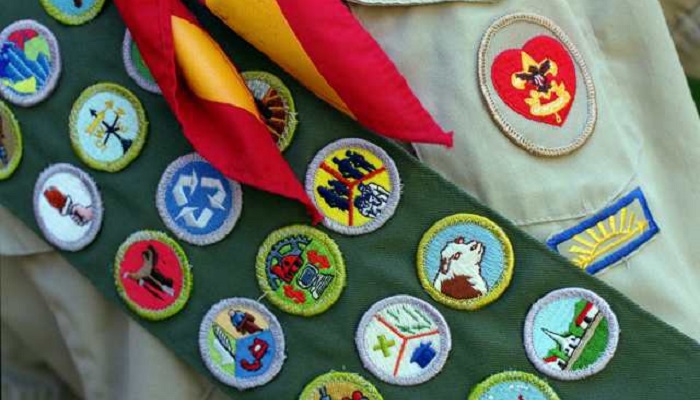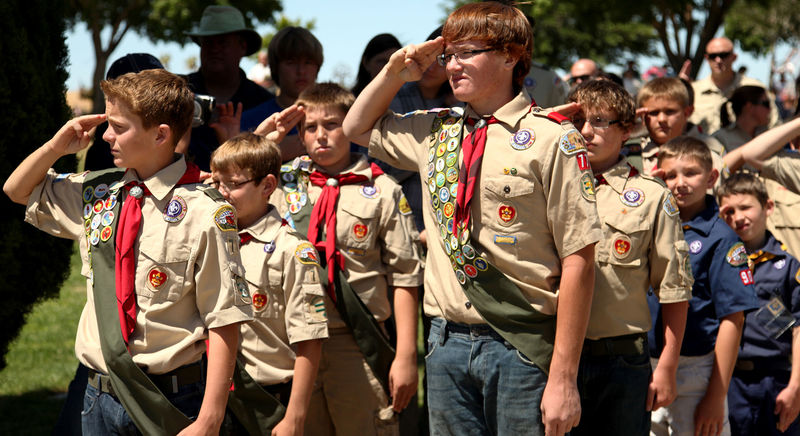
The other day I received a text from a concerned friend regarding new church policies for youth. Her concern was that now young men would be asked to stand up and be recognized in January of the year they turn 12, 14, and 16, but young women no longer will.
She is right, there is a problem, but it is not an equality/ recognition problem. The problem is that a young man standing to be sustained is viewed as a recognition, when really, it is to agree or disagree with the bishop’s discernment that the boy is spiritually worthy of ordination (much like the sustaining of any other calling). The fact that it is perceived as recognition is one of the unfortunate flaws of our collective church culture.
Scout Culture vs Church Culture
 One of the largest culprits for this emphasis on achievement and recognition is the implicit influence of Scouting on the Church. Scouting is about what marketing experts call, Leveling Up, Badges, and Quests. It works well in limited contexts, but achievement and recognition culture is anathema to discipleship culture.
One of the largest culprits for this emphasis on achievement and recognition is the implicit influence of Scouting on the Church. Scouting is about what marketing experts call, Leveling Up, Badges, and Quests. It works well in limited contexts, but achievement and recognition culture is anathema to discipleship culture.
Scouting culture’s infusion into church culture doesn’t stop with equating a sustaining vote with recognition for some achievement. It also seeps into our congratulatory language when someone receives a “high” calling or ordination. A proper understanding of a calling as discipleship would never generate an ‘atta boy’ of any kind. In fact, a disciple would receive an ‘atta boy’ much like Lucia in You Are Special received gold stars: they never stuck.
Unfortunately, in many cases, by design or accident, young men between 12 and 18, since 1913, were subject to a program worldview driven largely by Scouting at the expense of priesthood and discipleship. Consider the following important differences between the two and the inherent conflict:
- Scouting is primarily a leadership culture; the Priesthood is primarily a discipleship culture. The former has utility, the latter is crucial.
- The Scout uniform distinguishes young men according to rank. Clothing associated with Priesthood erases rank.
- As mentioned, Scouting connects service and accomplishment with recognition; discipleship requires service without recognition. The fruits of accomplishment in discipleship are the gifts of the Spirit, at complete odds with public recognition.
- The actual correlation between Scouting achievement and honorable, effective missionary service is probably not very strong and is more a matter of correlation than causation. More likely, good scouts and good missionaries simply derive from the same point: conscientious parents, mothers especially.
- The fire of real testimony is the great behavioral governor, not a list containing “A scout is…” no matter how many times it is repeated.
- There is no correct principle found in Scouting that the Priesthood does not encompass.
- Where a program exists, we tend to defer to it as machinery that we hope produces desired throughput. Programs tend to become proxies for genuine ministry. Ammon and his brethren accomplished a lot (to say the least) with a program no more complex than this: Alma 17:2-3; 26:21-22. No proxy exists for this process.
Accomplishment vs Discipleship
 Some wards and stakes subordinated scouting as well as can be expected. Scouting can have utility when it is placed appropriately in the background and when its cultural aims are understood as the product of a fallen world and to be put off. Stripped of advancement and recognition, Scouting has some value in teaching things of the world. After all, Ammon had sword, sling and equestrian skills. The question is, stripped of achievement, advancement, and recognition, could Scouting stand on its own?
Some wards and stakes subordinated scouting as well as can be expected. Scouting can have utility when it is placed appropriately in the background and when its cultural aims are understood as the product of a fallen world and to be put off. Stripped of advancement and recognition, Scouting has some value in teaching things of the world. After all, Ammon had sword, sling and equestrian skills. The question is, stripped of achievement, advancement, and recognition, could Scouting stand on its own?
Speaking of Ammon, if you take him as one of the greatest of several examples of what we want young men to become as missionaries and saints, the task is sobering. We have 6.5 years on average to take an impressionable eleven year old with little power and a lot of fear and turn him into a man who is anxious to save angry enemies, serve until the end of his days, know what others are thinking due to his familiarity with the Holy Ghost, teach with power and authority, and trust in the power of Jesus Christ to deliver him and them. Activities and lessons must be focused and without distractions from the unnecessary.
Activities and lessons also need to be delivered by someone as close as we can get to an Ammon. If coming to know Jesus is most important, you will likely pick an entirely different Young Men’s leader than if achieving the rank of Eagle is paramount.
The Duty to God program of the Church seems to have learned from the advancement/recognition lesson. There are no medals, certificates, badges, or anything else that smacks of achievement/recognition culture since 2010.
A newly called Deacons Quorum Advisor told me the following, “My Bishop gave me two scenarios that might be the result of my service:
“A, everyone ranks up to Eagle by the time they are 14. Merit badges are consistently earned, powwows and scout camps are attended at least once a year and every young man can recite the scout oath, law and motto, but no one comes to know the Savior or understand the workings of the Holy Ghost any better.
“B, Everyone turns 14 with a brightness of hope that comes from understanding the Savior’s doctrine and comes to know Him through immersion in scripture and service in the priesthood, but not one merit badge is earned.
“B is a total and unqualified success. A is a total fail.”
I like the emphasis this bishop gave to the calling. I believe that a Deacon could both achieve the rank of Eagle Scout before 14 and find a burning testimony of the Savior. It is just that the one is essential and the other optional and should be treated that way.
You may notice that I have made no reference to BSA’s decision to allow gay leaders, gay and transgender scouts and girls to fully participate in its programs (for which the Girl Scouts have filed suit). I don’t find these decisions particularly relevant to my core objection to scouting culture. I am critical of the promotion of the car, not that it now comes with different upholstery.
As of 2020, there will no longer be a conflict with scouting. I truly hope that career scouters are not consulted when the programs for young men and young women are designed and tested.





